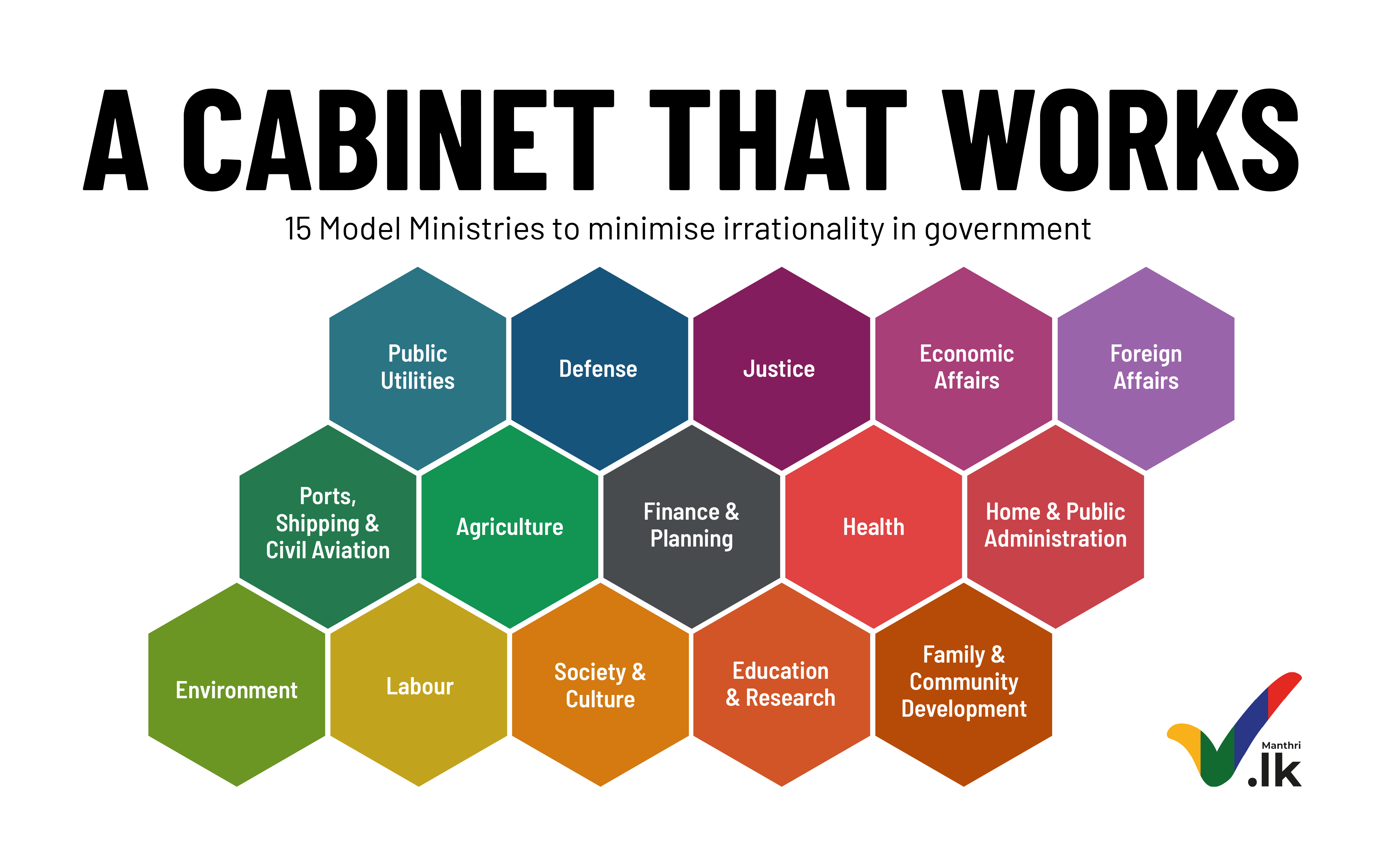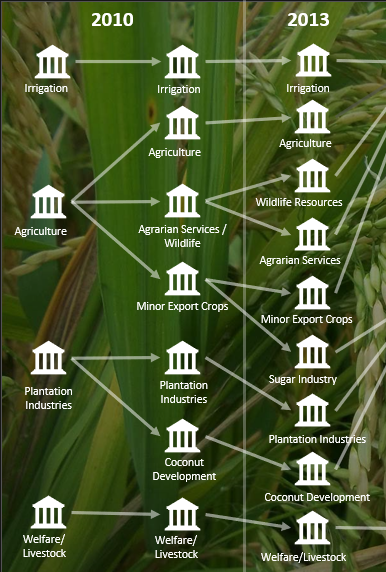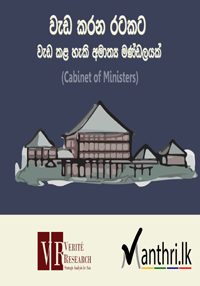A ‘Blueprint for a Rational Government in Sri Lanka‘, created by Verité Research and Manthri.lk, seeks to implement the recommendations from the White Paper on “A Rational Method for Cabinet Formation in Sri Lanka“, published in 2020. It lists down the duties and functions, institutions and acts to be implemented under the 15 ministries proposed in the annexures of the White Paper, following revisions that were supported by extensive expert consultation. This document is the blueprint by which governments can solve 3 key issues relating to irrational cabinet formation: 1. Misalignment of subjects Unrelated subjects being grouped together under one ministry. 2. Fragmentation of subjects Related subjects being split across different ministries. 3. Not having a fixed structure for ministries and their institutions Ministry purviews often change alongside ministerial appointments and shuffles, resulting in institutions shifting from ministry to ministry. The document takes on the form of an extraordinary gazette, and serves as a starting point for a more effectively and efficiently structured form of government.
Ministries are the overarching bodies that house relevant government institutions and functions within a particular subject area. They are responsible for the formulation, implementation, monitoring, and evaluation of national-level policies and strategies in their assigned sectors (such as health, education, and agriculture). In this regard, they coordinate with the institutions under their purview. Therefore, ministries—and by extension ministers—are vital to determining the institutional effectiveness and efficiency of service delivery by the public sector. However, public sentiment suggests otherwise. Public sector inefficiency has been a long-standing issue that successive governments in Sri Lanka have failed to address effectively. The general perception of the public is that the elected representatives who run government make an already inefficient system worse, and this perception is becoming more entrenched with time. The present paper seeks to address this gap between expectations of the role of ministers and ministries and reality as experienced and perceived by society. It highlights two types of problems that comprise the irrationality of present cabinet formation and seeks to address how effective and efficient governance in the public sector can be achieved. A Blueprint document that proposes a formulated rational structure for government, building on and refining the recommendations of the…
ශී්ර ලංකාවේ රජයේ ඵලදායීතාවය සහ කාර්යක්ෂමතාවයට බෙහෙවින් බලපාන කැබිනට් මණ්ඩලයේ අමාත්යංශ ඇති කෙරෙන ආකාරය සම්බන්ධයෙන් කළ පර්යේෂණයක තොරතුරු පසුගියදා ජනගත කරන ලදී.


